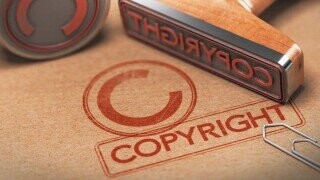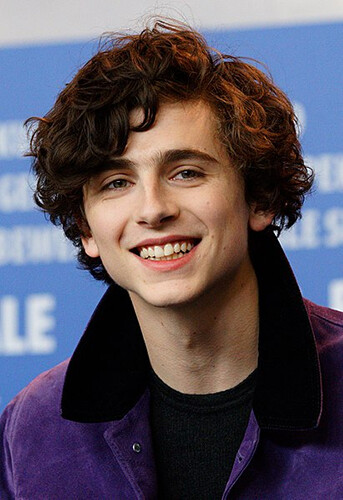Cracked's Big Questions: 5 Things To Demystify Copyright, Trademark, And Patents

Welcome to Cracked's Big Questions, where we try to explain things the best that we can. This time around, we're gonna discuss intellectual property rights, and before we begin, it is important to understand that there's no such thing as international copyright law. Each country has its own laws on how to handle copyrights and respect the copyrights of other nations. To wit, we're gonna talk about this from the perspective of U.S. law.
The ownership of ideas was an important enough idea to the Founding Fathers that they included clauses for patents and copyrights in the Constitution. And it only took about a year after that document was fully ratified for the government to think, "oh yeah, trademarks too!" In the 23 decades since, they've been fine-tuning the system to what it is today: a semi-functional gray area held together with red tape. There are still a lot of kinks to work out and loopholes to tighten up, but we're sure one day we'll get it all figured out. So, let's explore …
Copyright
Copyright is just that: a right to copy. It gives the author of an original creative work the right to control how that work is copied, transferred into another medium, and distributed. Any creative work can be eligible for a U.S. copyright, but it does have to be registered with the copyright office. You have to file an application with copies of the work, pay a filing fee, and wait 3-9 months for the registration to go through.
Don't Miss
There is also a long-standing myth of what's called a Poor Man's Copyright, where you simply have a copy of the work notarized or you could mail a sealed copy to yourself so that you can prove that you had ownership of the idea on the date of the notary stamp or postmark. Do. Not. Do. This. A Poor Man's Copyright gives as much legal proof of ownership as licking your food prevents your little brother from eating it.
It's insane just how many copyrights need to be filed. Any book, for example, will have multiple copyrights at play. The author of the book holds a copyright to the narrative. The publishing company holds a copyright on the design of the cover and the layout of the book. Any photographs, illustrations, and even the fonts used in the book are used under license from their respective copyright holders. The stack of contracts involved in getting one book published is probably 10 times thicker than the book itself. Which means that we'll never dismiss the effort that goes into bizarrely niche Kindle erotica ever again:

CreateSpace Independent Publishing
Say that book gets released as an audiobook. Well, that is a derivative work. The publishers and producers hold a copyright on that recording, while the original author maintains theirs over the narrative. The same holds true if the book gets adapted into another medium like a play, movie, or TV show. The studio and/or the producers will hold copyright over the adaptation they created, meaning there are now two copyrights on what is essentially the same narrative. There are even derivative works of derivative works. A book may get turned into a Broadway play, the play gets adapted into a movie, and they publish a novelization of the screenplay using the studio's movie poster as the cover-- and now do you see why copyright lawyers are so damn busy all the time?!?
Authorship Vs. Ownership
Then, there's the issue of Author's Rights. An author of any creative work (or their estate) can maintain strict control over if and how their works are distributed or adapted. J.D. Salinger has never allowed a film version of Catcher in the Rye to be made, and, since his death, his estate has honored that wish. They've had many lucrative offers over the years, hoping they'd change their minds, but they've rejected them all. That's their right. However, when that novel enters the public domain in 2080, there will be nothing stopping Hollywood from adapting it and finding a way to cast Timothée Chalamet as Holden Caulfield despite the fact that the actor would be 85 years old by then.

Also important to know is that in copyright law, the creator of the work is not always the author. It could be a work-for-hire situation. This article you're reading right now is a prime example. As a writer, I am under contract to write this piece, and I am financially compensated for my work. But the copyright to this piece, along with everything else on this site, belongs to Cracked's parent company, Literally Media. They're free to do whatever they want with it. They could turn around and sell this article to Universal and turn it into a romantic comedy/space opera/buddy cop movie called Fair Use, and per my contract, I would have zero say in the matter.

There is also a distinction between being the author of the work and the owner of it. An artist, such as a painter or a sculptor, can create a one-of-a-kind art piece and own the copyright to that piece even if an art collector has ownership of the physical art piece itself. They cannot make copies of the art piece without the copyright holder's permission.
This is something to keep in mind if you are investing in NFTs. You may own the NFT, but you are only licensing the artwork. The minters of the NFT hold the actual copyright, so there may be strict rules in place on what you can actually do with that artwork. Break those rules, and they have the right to terminate your license to the artwork. You might then lose your access to the NFT, or it may be sold off without your permission, or they may challenge you to a showdown at high noon-who the hell knows because NFTs are still the Wild West of financial markets and no one wants to be the sheriff.
Trademarks and Patents
Trademarks protect anything that uniquely identifies a brand, product, or service, while a patent will protect the design of any inventions or processes that provide a unique utility. Simply put, if copyright covers what was created, a trademark identifies who manufactured it, and a patent covers how it was created. We probably could've published only this paragraph and called it a day here, but we're gonna elaborate anyway because … sometimes “simply put” is not that simple.
Trademarks and patents are both handled by a different government agency than copyrights and for good reason. The U.S. Patent and Trademark Office has a much more extensive application process. Plus, each state has its own individual trademark system in place for companies that conduct business exclusively in that state. If that business moves or expands into another state, they would have to file for a trademark there as well. It can be a pain in the ass, but it makes sense because if every business in America had to file for trademarks on a federal level, all the good names would be snatched up pretty quick, and you might have to name your company the same way you chose your Twitter handle.

ESB Professional/Shutterstock
Anything you want to be associated with your brand has to be trademarked separately: The name itself, the logo, slogans, mascots, distinctive color schemes, unique packaging, sounds, product names, and their logos, etc. Each one of those applications has to specifically list every way you intend to use that trademark, and then it must go through a review process to ensure it wouldn't reasonably be confused for an already existing trademark. In order to improve the chances that your trademark application gets approved, it's important to make sure someone else hasn't already registered the idea.
But when it comes to patent applications, you'd better come correct. When you're filing a patent application on an invention, chemical compound, software code, process, or ornamental design, you are expected to have done most of the due diligence beforehand. You can patent an idea that includes previously patented ideas, is an improvement of an existing patent, or a method of combining two or more existing patents, but it cannot infringe on those original patents. It has to be used in a way that was obviously not intended by the original patents.
Everything that goes into your patent application has to be the exact specifications. The patent must describe in full detail how it is built, what it does, and how it is to be used. Any Joe Schmo should be able to take your patent, follow those directions to the letter and be able to achieve the same results every time. But if Joe Schmo uses your patent to benefit himself without your permission or fails to compensate you for it, you can take legal action against him.
I know this is a Cracked article, and we're supposed to be injecting humor into this subject, but we really can't because patents are purposely the most boring thing on earth. It can take years for a patent application to get approved, and most of that is a bunch of government bureaucrats checking your math. There's nothing sexy or exciting about this topic-- unless precision is your kink.
Expiration
Patents expire 20 years after the date of the initial patent application, which makes sense for most technology patents because that's more than enough time for that tech to become obsolete. It is possible to get a patent term extension, which is generally reserved for food additives, medical devices, and pharmaceuticals because the profit margins for those never go out of style.
Copyrights have a much longer shelf life but can come with as many conditions as a Manhattan parking sign. They last the life of the author plus 70 years. However, if it was a work of corporate authorship, meaning the author wrote it for the corporate entity that actually held the copyright, it expires 120 years after the creation of the work or 95 years after its publication, whichever comes first. On January 1 of each year, all copyrights that passed these deadlines in the previous year officially enter the public domain.
Before 1998, it was the life of the author plus 50 years and 75 for corporate authorship, but then California Representative (and Cher's ex-husband) Sonny Bono introduced the Copyright Term Extension Act. This law also granted a 20-year extension to works published before January 1, 1978, that had not already entered the public domain, meaning there was a 20-year gap between 1999 and 2019 where nothing entered the public domain. Surely it was just a coincidence that the last song Sonny Bono wrote as a musician just happened to have been released in 1977.

CBS
Trademarks, on the other hand, never expire. They last as long as the trademark holder decides to continue using them, and this can often provide an excellent loophole for copyright holders. For example, Edgar Rice Burroughs died in 1950, which means that the last of his literary works entered the public domain on January 1, 2021. So, all of those novels and characters he created are up for grabs now, right? Not so fast.
In 1923, Burroughs founded Edgar Rice Burroughs, Inc., which has since held the rights to all of his intellectual property. The company controlled the copyrights of his works until they had expired, but they also registered over 100 trademarks on all of his book titles, character names, as well as several variations of Burroughs' name. You can't use those titles and character names without making a deal with Edgar Rice Burroughs, Inc.
But we can still make movies based on his books as long as you don't use the names and titles, right? Well, first of all, good luck getting a studio to greenlight that project. Secondly, if you go anywhere near Tarzan or John Carter of Mars, you'll likely piss off both Warner Bros. and Disney. Warner Bros. released The Legend of Tarzan in 2016, while Disney released their Tarzan in 1999 and John Carter in 2012. They now hold onto the copyright to their respective versions of the stories. Theoretically, if you went forward with a generic named rip-off of Tarzan or John Carter, those studios could sue you for infringing on their adaptations.
Disney is notorious for using this same trademark trick. Steamboat Willie, which featured the first appearance of Mickey Mouse, will enter the public domain in 2024, but since Disney has long since registered the trademark on every possible iteration of that character they'll never lose control over it.
The same holds true with nearly all of the characters under their banner. They also lobbied hard for Sonny Bono's Copyright Term Extension Act, which helped buy Disney some time to pump out a bunch of live-action remakes of their classic films. Was there ever a massive public demand for a Dumbo remake? Not really. Was there a countdown clock ticking away over at Disney's legal department? Absolutely.
Abusing the System
Copyright, trademark, and patent law, much like everything else these days, has no shortage of people trying to exploit the system. There are patent trolls who file their own or buy the rights to other people's patents, preferably designs that are pretty obvious solutions to common problems. They don't actually do anything with the patents, though. They just wait until someone infringes on the patent and sue them for such a ridiculously large amount of money that they'll try to settle out of court just to make it all go away.
Then there are trademark trolls, who will file trademarks on words or phrases that are either fairly commonplace, something that could easily be confused for an existing brand, or that a huge company will want to use eventually, and either hold the trademark for ransom or sue for infringement. If the descriptions of these scams so far are giving you any bright ideas, let's make two things perfectly clear: 1) you're probably a horrible person, and 2) these scams never work out in the long run. There are only so many frivolous lawsuits you can file before the court system runs out of sympathy.
In 1998, a few years after it became obvious what the internet was capable of becoming, the Digital Millennium Copyright Act (DMCA) was signed into law. It gave copyright holders a ton of legal options over how their creations can be distributed over the internet. And the results of this law over the past 24 years have been … a mixed bag. There's been a lot of positives and a ton of d-baggery.
The idea of fair use is very broadly defined. You are allowed to use snippets of a copyrighted work for the purposes of commentary, criticism, education, news reporting, etc., but there is a line there. The problem is no one can really define where that line is. Obviously, you can't just post the latest Marvel movie on YouTube in its entirety and tack on a clip at the end of you saying, "That was awesome!" and call that criticism.
But on the other hand, videos posted online get struck down on copyright grounds all the time, even if it's something as innocent as a song playing in the background in a public setting. Every video hosting and social media site scans these videos for copyrighted material like you would use the Shazam app to identify a song you don't recognize and will take the offending video down accordingly. And putting "I do not own the rights to this material" in the description only provides you so much cover because some copyright holders do not mess around.
And people have found a way to use these DMCA strikes to their advantage. Maliciously false copyright claims are frequent on YouTube simply because the target of a reaction video didn't like what was being said about them. Cops have even started playing Disney songs when they realize they're being filmed to keep the footage from being spread on social media. And while it's horrible that they're resorting to that to avoid accountability for potential civil rights abuses … it makes it way worse that they're doing it to "We Don't Talk About Bruno."
Dan Fritschie is a writer, comedian, and frequent over-thinker. He can be found on Twitter, and he thanks you for your time.
Top image: Olivier Le Moal/Shutterstock
Why do we cling to obsolete technology?
How did we end up with so much junk food?
